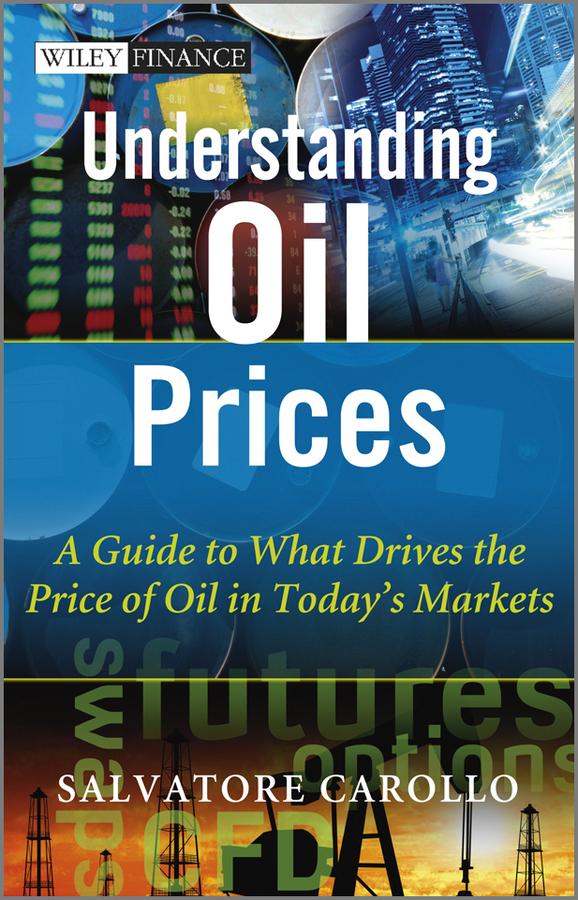Электронная книга: Salvatore Carollo «Understanding Oil Prices. A Guide to What Drives the Price of Oil in Today's Markets»

|
It’s a fair bet that most of what you think you know about oil prices is wrong. Despite the massive price fluctuations of the past decade, the received wisdom on the subject has remained fundamentally unchanged since the 1970s. When asked, most people – including politicians, financial analysts and pundits – will respond with a tired litany of reasons ranging from increased Chinese and Indian competition for diminishing resources and tensions in the Middle East, to manipulation by OPEC and exorbitant petrol taxes in the EU. Yet the facts belie these explanations. For instance, what reallyhappened in late 2008 when, in just a few weeks, oil prices plummeted from $144 dollars to $37 dollars a barrel? Did Chinese and Indian demand suddenly dry up? Did Middle East conflicts magically resolve themselves? Did OPEC flood the market with crude? In each case the answer is a definitive no –quite the opposite in fact. Industry expert Salvatore Carollo explains that the truth behind today’s increasingly volatile oil market is that over the past two decades oil prices have come untethered from all classical notions of supply and demand and have transcended any country’s, consortium’s, cartel’s, or corporate entity’s powers to control them. At play is a subtler, more complex game than most analysts realise (or are unwilling to admit to), a very dangerous game involving runaway financial speculation, self-defeating government policymaking and a concerted disinvestment in refinery capacity among the oil majors. In Understanding Oil Prices Carollo identifies the key players in this dangerous game, exploring their competing interests and motivations, their moves and countermoves. Beginning with the1976 oil embargo and moving through the 1986 Chernobyl incident, the implementation of the US Clean Air Act Amendments of 1990, and the precipitous expansion of the oil futures market since the turn of the century, he traces the vast structural changes which have occurred within the oil industry over the past four decades, identifying their economic, social and geopolitical drivers, and analysing their fallout in the global economy. He explores the oil industry’s decision to scale down refining capacity in the face of increasing demand and the effects of global shortages of petrol, diesel, jet fuel, fuel oil, chemical feedstocks, lubricants and other essential finished products, and describes how, beginning in the year 2000, the oil futures market detached itself almost completely from the crude market, leading to the assetization of oil, and the crippling impact reckless speculation in oil futures has had on the global economy. Finally he proposes new, moresophisticated models that economists and financial analysts can use to make sense of today’s oil market, while offering industry leaders and government policymakers prescriptions for stabilising the market to ensure a relatively steady flow of affordable oil. A concise, authoritative guide to understanding the complex, oft misunderstood oil markets, Understanding Oil Prices is an important resource for energy market participants, commodity traders and investors, as well as business journalists and government policymakers alike. Издательство: "John Wiley&Sons Limited (USD)"
ISBN: 9781119962892 электронная книга Купить за 4552.77 руб и скачать на Litres |
Другие книги схожей тематики:
| Автор | Книга | Описание | Год | Цена | Тип книги |
|---|
См. также в других словарях:
Plug-in hybrid — The Chevrolet Volt is the first mass production plug in hybrid available in the United States. A plug in hybrid electric vehicle (PHEV), plug in hybrid vehicle (PHV), or plug in hybrid is a hybrid vehicle which utilizes rechargeable batteries, or … Wikipedia
china — /chuy neuh/, n. 1. a translucent ceramic material, biscuit fired at a high temperature, its glaze fired at a low temperature. 2. any porcelain ware. 3. plates, cups, saucers, etc., collectively. 4. figurines made of porcelain or ceramic material … Universalium
China — /chuy neuh/, n. 1. People s Republic of, a country in E Asia. 1,221,591,778; 3,691,502 sq. mi. (9,560,990 sq. km). Cap.: Beijing. 2. Republic of. Also called Nationalist China. a republic consisting mainly of the island of Taiwan off the SE coast … Universalium
France — /frans, frahns/; Fr. /frddahonns/, n. 1. Anatole /ann nann tawl /, (Jacques Anatole Thibault), 1844 1924, French novelist and essayist: Nobel prize 1921. 2. a republic in W Europe. 58,470,421; 212,736 sq. mi. (550,985 sq. km). Cap.: Paris. 3.… … Universalium
Nobel Prizes — ▪ 2009 Introduction Prize for Peace The 2008 Nobel Prize for Peace was awarded to Martti Ahtisaari, former president (1994–2000) of Finland, for his work over more than 30 years in settling international disputes, many involving ethnic,… … Universalium
literature — /lit euhr euh cheuhr, choor , li treuh /, n. 1. writings in which expression and form, in connection with ideas of permanent and universal interest, are characteristic or essential features, as poetry, novels, history, biography, and essays. 2.… … Universalium
